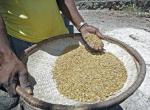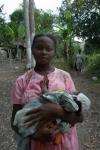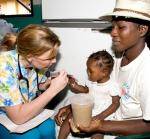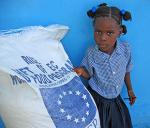Haiti Food Security Update (4/27/2008)
 Security and food security go hand in hand in countries like Haiti that are dependent on importation for survival. President Rene Preval announced a 15 percent cut in rice prices and a series of measures to uphold national food production namely by providing subsidies, credit and technical assistance to farmers. Rice exports are banned. However, Haitians cannot survive on rice alone. Corn, beans, oil, etc. all remain expensive. The President has yet to appoint a Prime Minister who can assemble a new Cabinet. We hope, whoever he or she is, the new Prime Minister will take food security seriously and communicate often with the public about what is doing to reduce food costs and improve national production. This should have been a priority long ago.
Security and food security go hand in hand in countries like Haiti that are dependent on importation for survival. President Rene Preval announced a 15 percent cut in rice prices and a series of measures to uphold national food production namely by providing subsidies, credit and technical assistance to farmers. Rice exports are banned. However, Haitians cannot survive on rice alone. Corn, beans, oil, etc. all remain expensive. The President has yet to appoint a Prime Minister who can assemble a new Cabinet. We hope, whoever he or she is, the new Prime Minister will take food security seriously and communicate often with the public about what is doing to reduce food costs and improve national production. This should have been a priority long ago.








